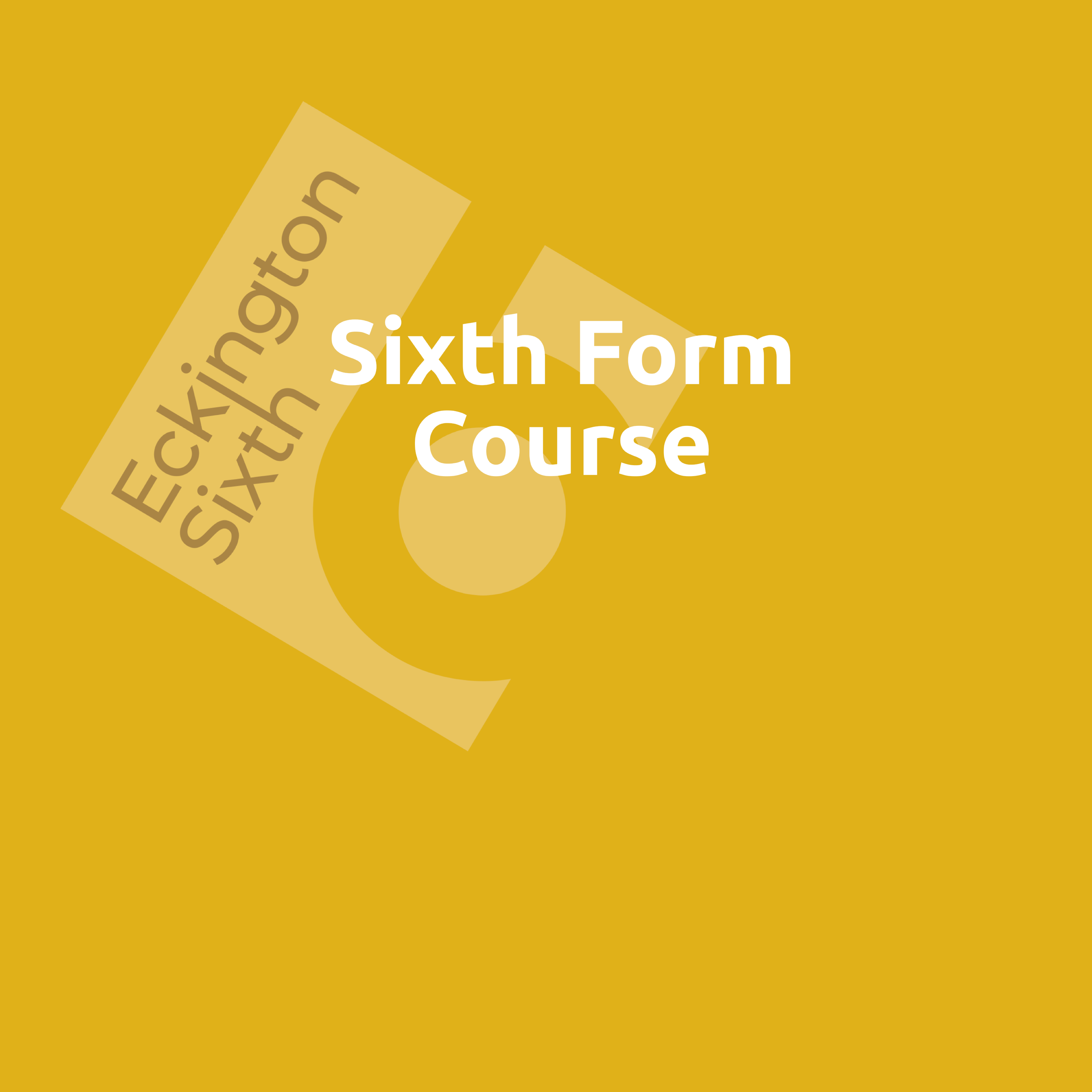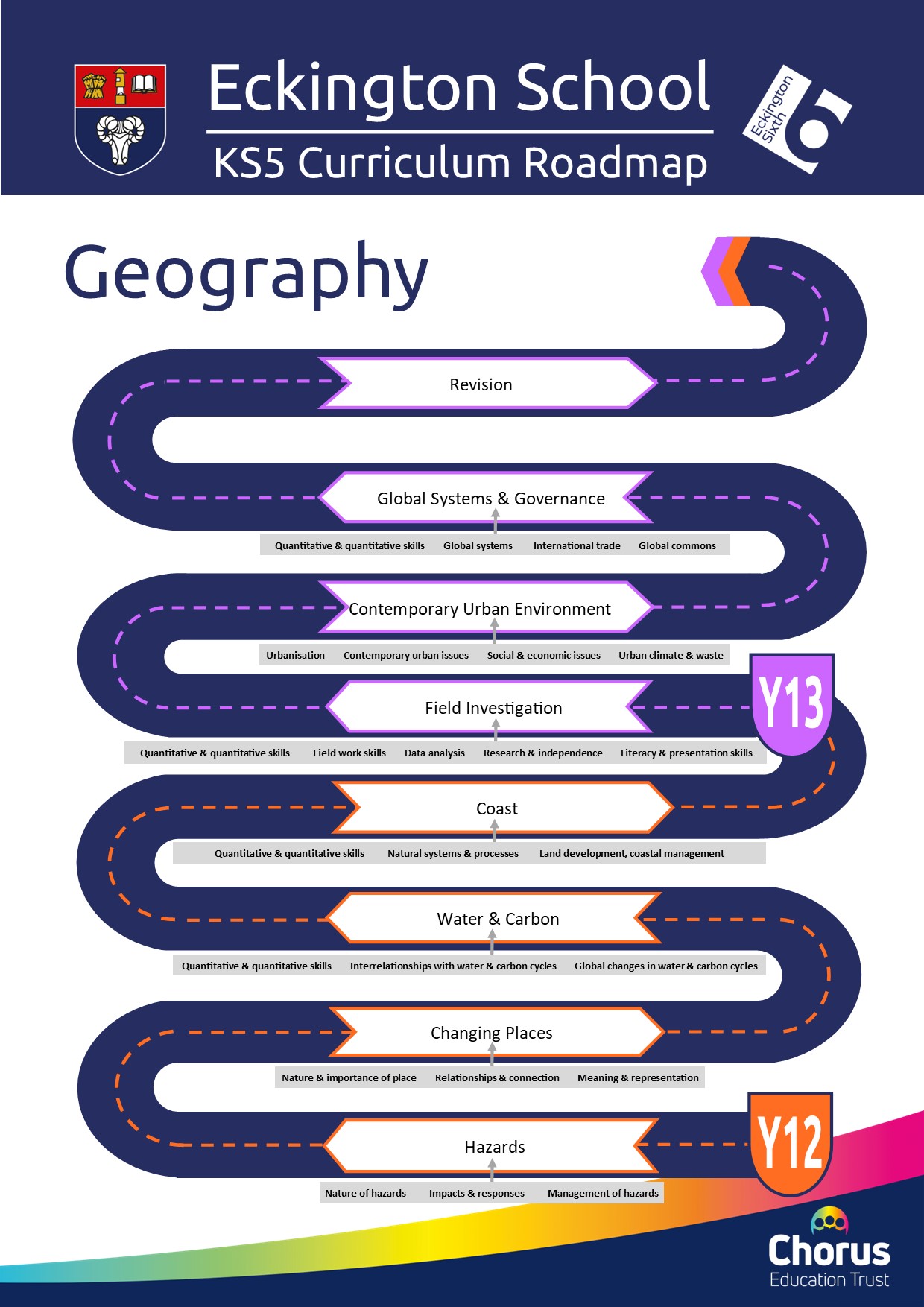Courses
We offer a broad and balanced curriculum, for:
Click the appropriate button below to find the details for each subject offered in each key stage.
Further details of our curriculum are available on the curriculum page.

Overview
Geography
Introduction
At Eckington School, our primary aim is to nurture global citizens who possess a profound understanding of the intricacies of the world around them. We believe that true global citizens comprehend not only their immediate surroundings but also the lives and cultures of people from diverse backgrounds. Acknowledging the inevitability of change, we strive to equip our students with the knowledge of how these changes impact our lives and the environments we inhabit.
To achieve this, students at Eckington actively engage in the learning process by asking challenging questions, acquiring a diverse range of skills, and honing their abilities to articulate ideas and opinions about the world. We recognise that these skills are essential for fostering critical thinking and a holistic understanding of global issues.
As our students transition from Eckington, our goal is for them to possess a deep awareness of their place in the world. We aspire for them to think like geographers, applying a spatial and analytical lens to their decisions about the future. This comprehensive approach not only prepares them for academic success but also instils in them a sense of responsibility as informed and engaged global citizens.
Qualification
A-level
Awarding body
AQA
Course leader
B Jessop
Assessment
- Examination: 80%
- Non-examined assessment: 20%
- A minimum of four days fieldwork outside of the classroom and submission of a geography fieldwork investigation of 3000 to 4000 words. The investigation can be based on data collected during our compulsory residential field-course or on a relevant geographical concept of the student’s own choice.
Curriculum
Curriculum Roadmap
Topics
- Water and carbon cycles.
- Coastal systems and landscapes.
- Hazards.
- Global systems and governance.
- Changing places.
- Contemporary urban environments.
- Geography fieldwork investigation.
Skills and requirements
Subject entry requirements
- Grade 5 in GCSE geography
- Grade 5 in GCSE English,
- Grade 5 in GCSE maths
- Grade 5 in GCSE science.
Sixth Form entry requirements
- 4 A-levels over 2 years: for students who have achieved 5 or more grade 7s or above including English and maths (grade 5 or above).
- 3 A-levels over 2 years: for students who have achieved 5 grade 5s or above including English and maths.
- Level 3 vocational courses: for students who have achieved 5 grade 4s or above including English and maths.
Beyond the classroom
Future pathways
University admissions officers and the top recruiters value the analytical and research skills gained from studying geography. Geographers are among the most employed graduates on leaving university and go into a wider range of careers than those from any other discipline. Just a few geography related jobs are: cartographer, commercial/ residential surveyor, environmental consultant, geographical information systems officer, planning & development surveyor, banker/financier, secondary school teacher, town planner, transport planner, international aid/development worker, landscape architect, logistics and distribution manager, market researcher, nature conservation officer, sustainability consultant, tourism officer.




